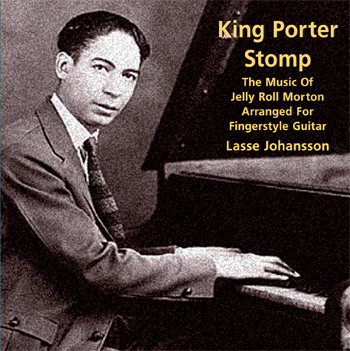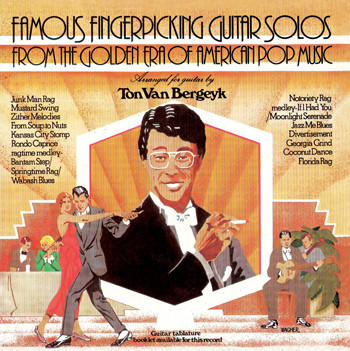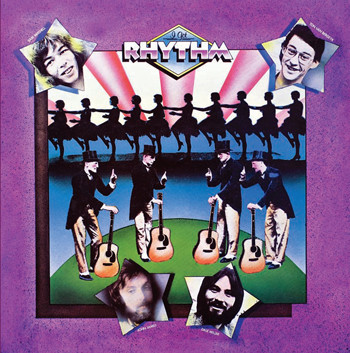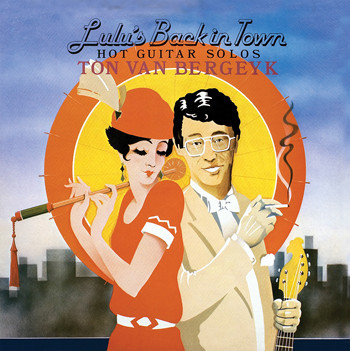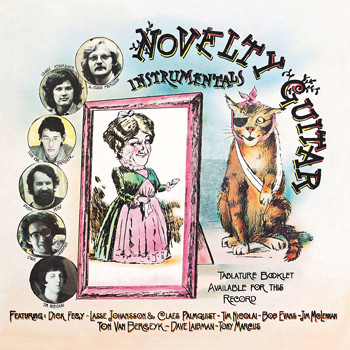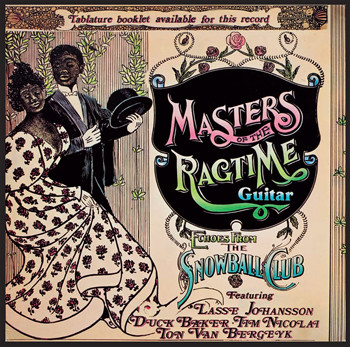
King Porter Stomp: The Music of Jellyroll Morton arranged for Fingerstyle Guitar- Lasse Johansson (only available as a Direct Download)
This collection pays tribute to Jelly Roll Morton the composer, giving his melodies full respect rather than turning them into improvisational vehicles. The result is a fine exposition of the musical possibilities of solo fingerstyle guitar playing and a worthy tribute to Jelly Roll Morton, one of the greatest musicians of the twentieth century.
The thirteen solos presented in this collection cover a wide range of Mr. Jelly Lord's music, chronologically and stylistically. They were arranged by the Swedish guitarist, Lasse Johansson. Lasse displays ample proof of the viability of the transposing Morton's ideas to the guitar. Pieces like King Porter Stomp and Grandpa's Spells are good examples of Morton's expansion of the ragtime approach. Chicago Breakdown and especially Wild Man Blues were made famous by Louis Armstrong. And Dixie Knows has a folk quality, the first section evoking Alabama Bound.
This is an enhanced CD and ALL the tunes have been transcribed in tab/music in the 72 page PDF booklet that is on the CD
Song Samples:
1. Wild Man Blues
2. Medley: Mint Julep, Buddy Bolden Blues, Freakish, Seattle Hunch
3. Cannonball Blues
4. Kansas City Stomp
5. Dead Man Blues
6. Mr. Jelly Lord
7. Sidewalk Blues
8. Midnight Momma
9. King Porter Stomp
10. Chicago Breakdown
11. Dixie Knows
12. The Jelly Roll Blues
13. Milenburg Joys
14. Big Foot Ham
15. Sweet Peter
16. Grandpa's Spells
Review: During the closing decades of the I 91h century, it is likely that African Americans migrating from the Mississippi Delta and other rural areas brought the emerging blues form that they had been playing on guitars and banjos with them to New Orleans. They introduced a new element into a rapidly evolving hybrid that included African rhythms preserved at Congo Square drum sessions, dance rhythms imported from Haiti and Cuba, brass band music, spirituals and work songs from the oral tradition, minstrelsy, and ragtime, as well as European derived popular songs, ballads, and classical music. The amalgam that resulted was eventually called jazz, and one of its primary architects was the pianist Jelly Roll Morton.
Among the first great jazz composers, Morton surely incorporated blues and other string-based African American traditional music into the mix when he wrote his songs. As producer (and guitarist) Duck Baker speculates in the CD's liner notes: "And Dixie Knows" has a folk quality, the first section evoking "Alabama Bound." It is also possible that some of these rural songsters could have been exposed to tunes like Morton was writing and taken the melodies and riffs back up to the country and shaped them into blues. Either way, there is definitely a complex relationship between early New Orleans jazz and the blues, so, as Baker suggests, Swedish guitarist Lasse Johansson's "re-transposing" of Morton's classic piano pieces for the guitar seems natural.
The guitar playing on King Porter Stomp is intricate and demanding, requiring some deft fingerpicking to approximate what Morton accomplished at the piano. And the music is enlivening and relaxing at the same time. Of course, coming from the Stefan Grossman Guitar Workshop, the CD is also instructional it includes a 104-page tab/music booklet of Johansson's transcriptions embedded as PDF on the disc. Obviously a labor of love, the CD provides some mellow sounds for listeners and a prodigious challenge for guitar players, and it questions our notions about the source points for blues and jazz. – Robert H. Cataliotti/Living Blues
Review: Lasse Johansson is a Swedish fingerstyle guitarist who gained wide attention among guitarists in the 1970s when he appeared on several anthologies, solo, and duet releases from Stefan Grossman and ED Denson's Kicking Mule Records. Johansson recorded this album of solos and duets of Jelly Roll Morton's works in 1980, when he was 29 years old, crafting intricate arrangements by listening to Morton's solo piano and ensemble recordings and referring to printed piano scores "to figure out the tricky parts" (it all sounds pretty tricky to me). Keep in mind, he accomplished this when vinyl records and magnetic tape were the common playback media, and when noise reduction and audio enhancement for transfers from the original discs were quite limited. Several solos are included on the disc, although many pieces are duets with guitarist Claes Palmkvist. Whereas Morton's recordings fuse composition and improvisation, Johansson and Palmkvist capably present such classics as "Dead Man Blues," "King Porter Stomp," and "Mr. Jelly Lord" as set pieces. Their versions are similar in spirit to work done a few years earlier by David Laibman and Eric Schoenberg on The New Ragtime Guitar (Smithsonian Folkways), though Johansson and Palmkvist focus on early jazz rather than classic ragtime. This CD rerelease includes a 104-page pdf file of Johansson's arrangements, which he revised and updated in 2012. To my ears, the performances stand the test of time well when compared to other steel string instrumental guitar works, and both the music and scores are fine examples for guitarists interested in arranging. Today, Johansson performs, teaches workshops with players like Mike Dowling, and has produced several instructional books and videos. In 2006 Solid Air released his latest full-length recording, Fingerstyle Guitar Classics. It's great that this important recording is available again, both for listeners and also for guitarists who want to benefit from Johansson's approach to arranging and playing early jazz. – Minor 7th/Patrick Ragains
Review: Jelly Roll Morton was famously gifted as a composer, as a bandleader and as a b.s. artist. He was also a whiz at making pianos magically shake, rattle and rag. Although probably only he alone believed his own claims of having single handily invented jazz, no one can refute Mortons early contributions for being as legendary as his songs are fantastically fun, which is why jelly fever still infectiously spreads to this day. Lasse Johansson contracted a bad case of it decades ago. However, the cool-handed Swede is a guitar ace. So, to scratch his 1980 King Porter Stomp itch, he performed the reductive math of trimming 88 rumbling keys down to only six expressive strings (sometimes 12, when in duet) without weakening the music's huge heart or its sense of perpetual motion. In the process, Johansson's solo acoustic guitar imparts a certain civility to "Wild Man Blues," a softly glowing prestige to "Kansas City Stomp," while rightfully kicking "Sweet Peter." "Chicago Breakdown" breaks down like butter on the stove, a swift golden rnelt. With some ragging, some swinging and some sweating, Mortons melodies still unfurl their originally intended joy, but with a new texture. By including a 72-page PDF tab/music booklet of Johansson's own arrangements, fellow guitarists have an immediate remedy for when-not if-Jelly fever strikes. – Blues Rag/Dennis Rozanski
